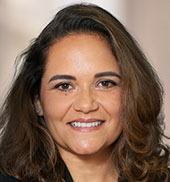San Francisco’s ordinance that required warnings about the health effects of certain sugar-sweetened beverages was shut down by the federal 9th Circuit Court of Appeals (see also, 9th Circuit rejects argument that ‘No Added Sugar’ means ‘healthy’). In American Beverage Association v. the City and County of San Francisco, the American Beverage Association, California Retailers Association and the California State Outdoor Advertising Association sought to enjoin the ordinance which required the following warning:
WARNING: Drinking beverages with added sugar(s) contributes to obesity, diabetes, and tooth decay. This is a message from the City and County of San Francisco [see, samples attached as Appendix A to Opinion].
The City’s ordinance applies to any ad or logo that “identifies, promotes, or markets a Sugar-Sweetened Beverage for sale or use” that is posted on billboards, structures, or vehicles, among other things. “Sugar-Sweetened Beverage” includes soda and other non-alcoholic beverages that contain at least one added sweetener and more than 25 calories per 12 fluid ounces of beverage. The ordinance provides detailed instructions regarding the form, content and placement of the warning and provides for administrative penalties by San Francisco’s Director of Health. According to the ordinance, San Francisco’s purpose in requiring the warning for certain sugar-sweetened beverages is, among other things, to “inform the public of the presence of added sugars and thus promote informed consumer choice that may result in reduced caloric intake and improved diet and health, thereby reducing illnesses to which [sugar-sweetened beverages] contribute and associated economic burdens.”
The 9th Circuit analyzed the ordinance under the United States First Amendment right to free speech. It first explained that commercial speech has a generally lower right to protection. The Court then explained that a required disclosure cannot be upheld if the disclosure is not purely factual and uncontroversial. “Generally, a disclosure requirement is purely factual and uncontroversial . . . so long as it ‘provide[s] accurate factual information to the consumer.’” In addition, the Court held that it must “also determine whether the compelled disclosure is an ‘unjustified or unduly burdensome’ regulation that may chill protected commercial speech.” A required disclosure may be unduly burdensome if it “effectively rules out” advertising in particular media.
The 9th Circuit then analyzed the ordinance using these parameters. First, the Court looked at the “factual accuracy” prong. It held that the warning was not purely factual and uncontroversial:
We conclude that the factual accuracy of the warning is, at a minimum, controversial . . . . The warning provides the unqualified statement that “[d]rinking beverages with added sugar(s) contributes to obesity, diabetes, and tooth decay,” . . ., and therefore conveys the message that sugar-sweetened beverages contribute to these health conditions regardless of the quantity consumed or other lifestyle choices. This is contrary to statements by the FDA that added sugars are “generally recognized as safe,” . . ., and “can be a part of a healthy dietary pattern when not consumed in excess amounts,”. . . .
“Because San Francisco’s warning does not state that overconsumption of sugar-sweetened beverages contributes to obesity, diabetes, and tooth decay, or that consumption of sugar-sweetened beverages may contribute to obesity, diabetes, and tooth decay, the accuracy of the warning is in reasonable dispute.” The Court held that the warning is “misleading and, in that sense, untrue,” because it is required exclusively on advertisements for sugar-sweetened beverages, and not for other products with equal or greater amounts of added sugars and calories. “By focusing on a single product, the warning conveys the message that sugar-sweetened beverages are less healthy than other sources of added sugars and calories and are more likely to contribute to obesity, diabetes, and tooth decay than other foods. This message is deceptive in light of the current state of research on this issue.”
The 9th Circuit concluded that rather than being “purely factual and uncontroversial,” the warning requires advertisers to convey San Francisco’s disputed policy views, which unduly burdens and chills protected commercial speech.
The Court concluded that the Associations have shown a likelihood of success on the merits of their First Amendment claim. The Court then finished up the opinion by discussing the other issues concerning an injunction. The 9th Circuit held that because the Associations have made a colorable First Amendment claim, they have demonstrated a likelihood of suffering irreparable harm if the ordinance is allowed to go into effect. Second, in balancing the hardships between the two sides, the Court held that because there is a likelihood of the Associations succeeding on the merits, the balance is in favor of the Associations. Last, the Court found that an injunction was in the public interest because protection of the First Amendment was in the public interest.
In conclusion, the Court held that an injunction was proper to stop the enactment of San Francisco’s ordinance.
In looking at the reasoning of the Court, it raises the question as to whether or not the Court’s position can somehow be applied to the more recent controversy in some jurisdictions related to taxation on sweetened beverages. It is clear that those beverages are being singled out for increased taxation due to the allegedly unhealthy nature of those drinks. It will be interesting to watch whether the reasoning of the Court here will provide assistance to opponents to the taxation of these beverages.
UPDATE: On January 29, 2018, the Ninth Circuit held that the cases should be reheard en banc, and that the three-judge panel disposition in these cases shall not be cited as precedent by or to any court of the Ninth Circuit. We will keep you advised.
Jeff Brown is a partner in the firm's litigation department . You can reach him at 310 282 9418 or jbrown@thompsoncoburn.com.




